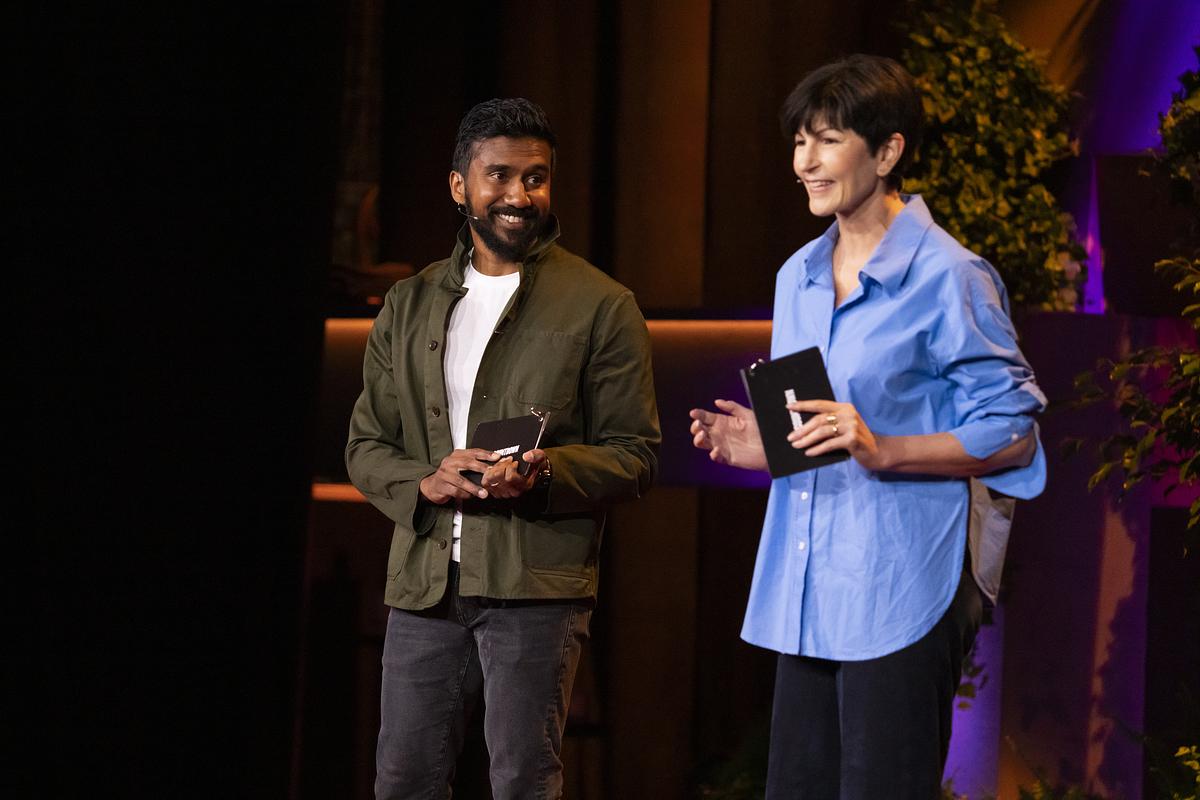
TED’s Lindsay Levin and systems innovator Ryan Panchadsaram host Session 4 of TED Countdown Summit on July 13, 2023, at the Fillmore Detroit in Detroit, Michigan. (Photo: Nick Hagen / TED)
To rise to the challenge of climate change, we need big, bold, gigaton-scale solutions. Session 4 of TED Countdown Summit 2023 focused on the clean technologies that need to scale fast — and made space for ideas on radical climate leadership, the use of art for environmental activism and the push for climate-friendly alternatives to the world’s most-consumed foods.
The event: Talks from Session 4 of TED Countdown Summit 2023, hosted by TED’s Lindsay Levin and systems innovator Ryan Panchadsaram
When and where: Thursday, July 13, 2023, at the Fillmore Detroit in Detroit, Michigan
Speakers: Olivia Breese, Jim Snabe, John O’Donnell, Isabella Kirkland, Marcelo Mena, Jim Whitaker, Jessica Whitaker Allen, Tao Zhang
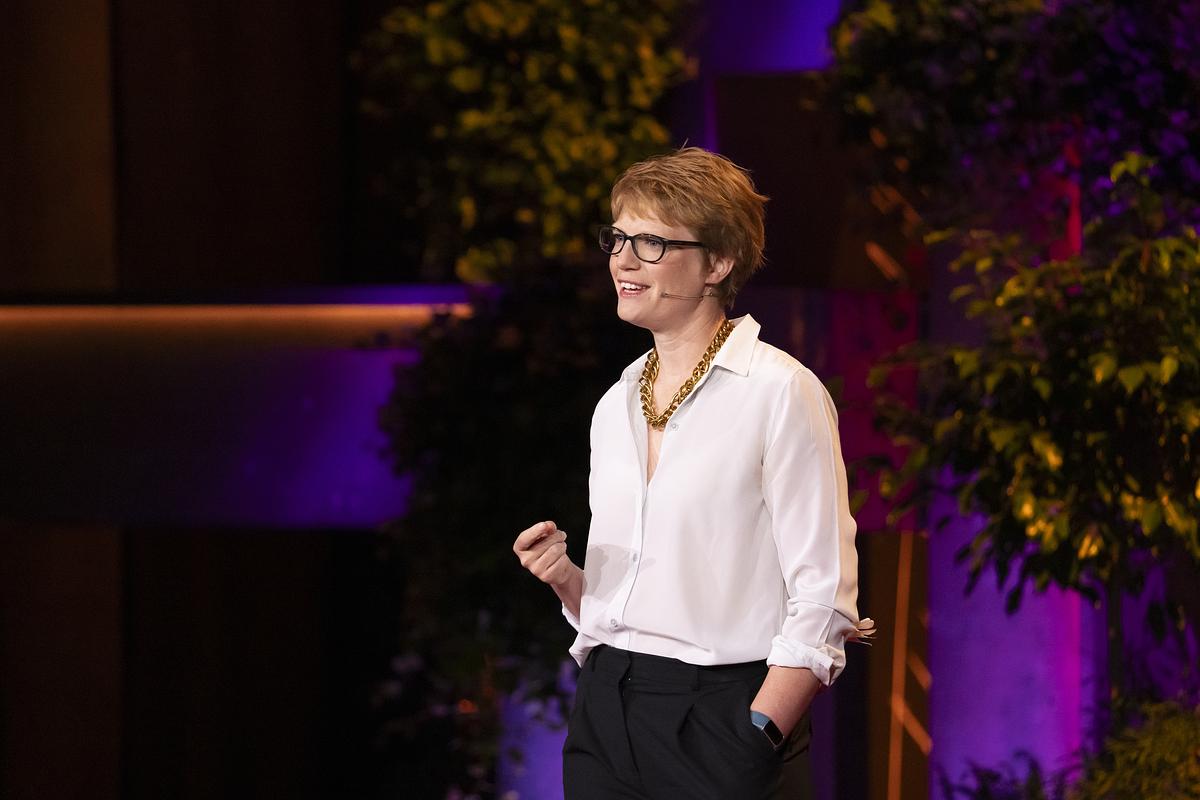
Energy innovator Olivia Breese speaks at Session 4 of TED Countdown Summit on July 13, 2023, at the Fillmore Detroit in Detroit, Michigan. (Photo: Nick Hagen / TED)
Energy innovator Olivia Breese imagines a “love story” between green electrons and water molecules, the result of which is a molecule that can store and release energy without emitting carbon dioxide — a flexible and vastly more sustainable alternative to fossil fuels. Similar to how wind energy has scaled up to become affordable and efficient, Breese calls for global investment in green molecule production. “A world which runs entirely on green energy, it’s not a luxury. It’s a necessity,” she says.
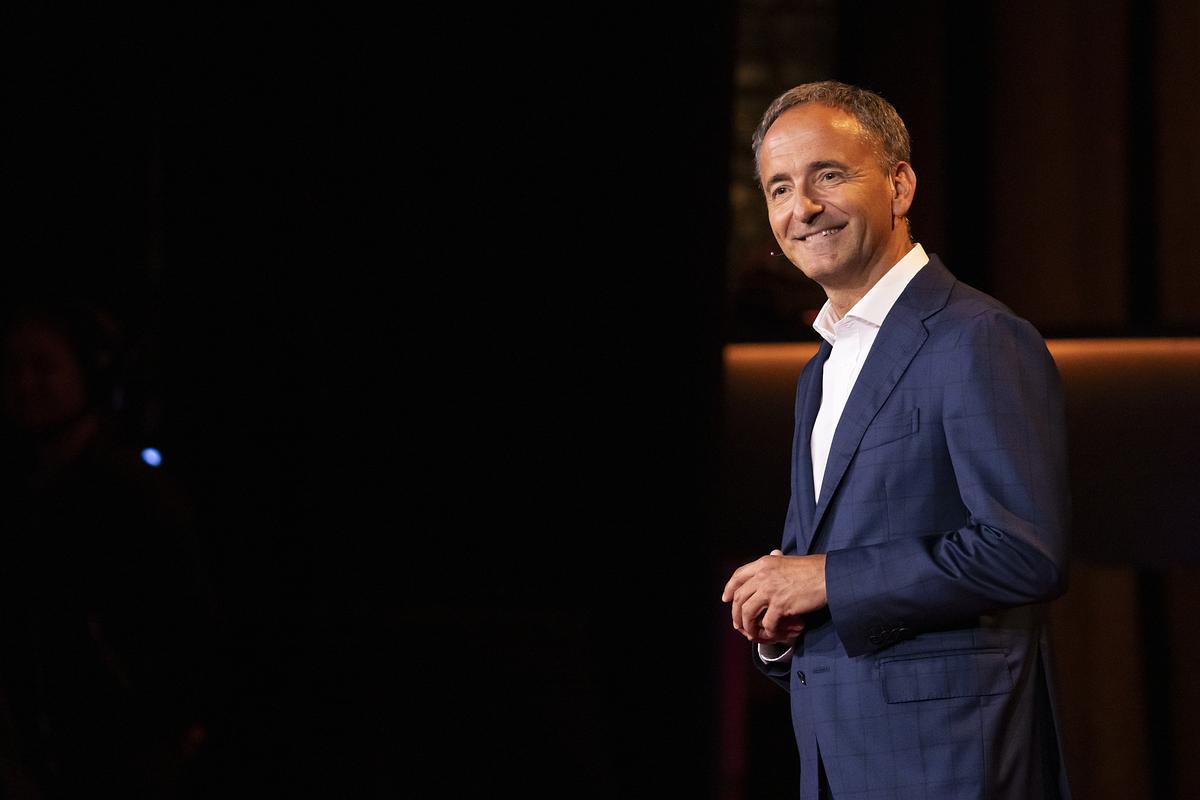
Jim Snabe, chairman of Siemens and Northvolt, speaks at Session 4 of TED Countdown Summit on July 13, 2023, at the Fillmore Detroit in Detroit, Michigan. (Photo: Nick Hagen / TED)
Throughout his career, Jim Snabe has helped lead companies working to accelerate decarbonization. Now, he’s also serving as Vision Council chair for the TED Future Forum (TFF), a new initiative focused on the role of business in advancing solutions to the climate crisis. He outlines TFF’s plans to be a catalyst and community for companies committed to stepping up with greater climate ambition, issuing an invitation for anyone interested in joining the massive, collaborative effort to transform the global economy. “If we want to avoid a climate disaster, we need much more radical leadership,” he says.
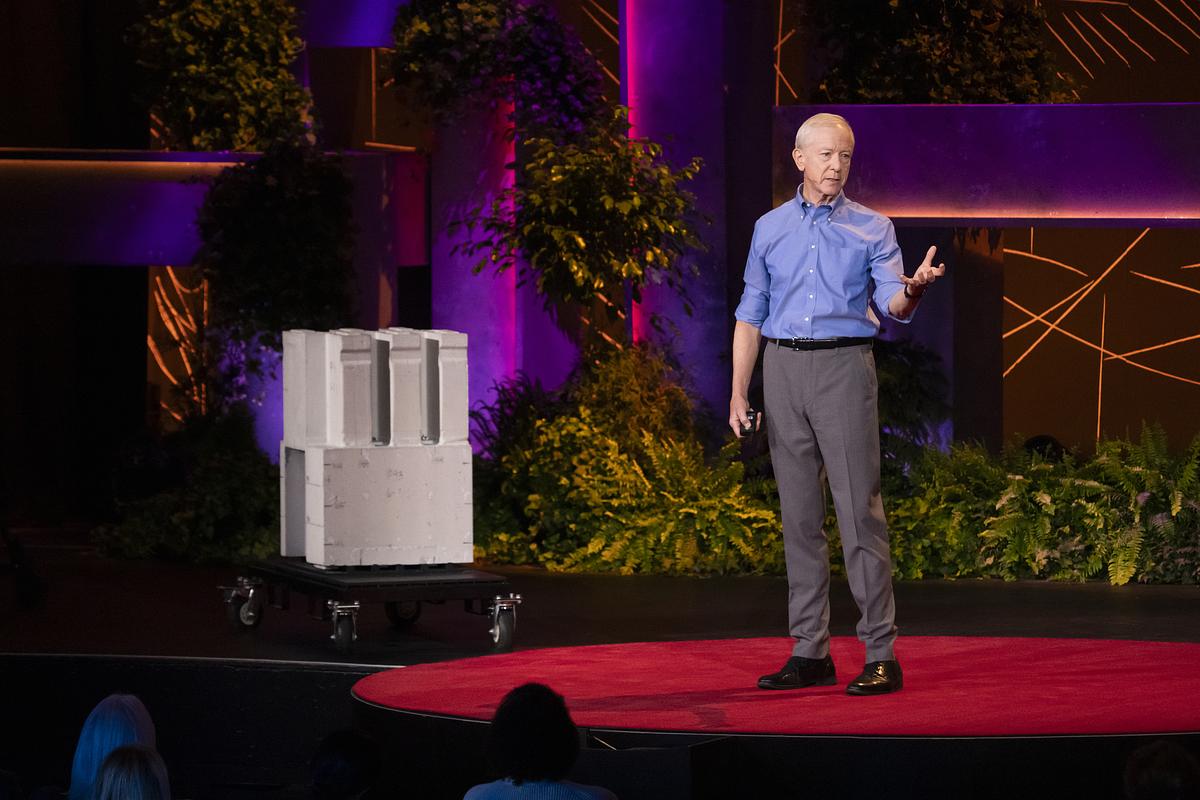
Energy entrepreneur John O’Donnell speaks at Session 4 of TED Countdown Summit on July 13, 2023, at the Fillmore Detroit in Detroit, Michigan. (Photo: Nick Hagen / TED)
Electrified industrial heat is the next trillion-dollar market, but manufacturing needs constant heat, requiring a way to store energy when the wind doesn’t blow and the sun doesn’t shine. Engineer John O’Donnell offers a solution: his company, Rondo, produces heat batteries consisting of thousands of bricks stacked in a grid, heated with renewable energy. When heated, a brick can store as much energy as a lithium battery per pound, but costs less and lasts longer. O’Donnell proposes that this “boring” (his word) but effective system could scale fast, helping to green industrial processes worldwide.
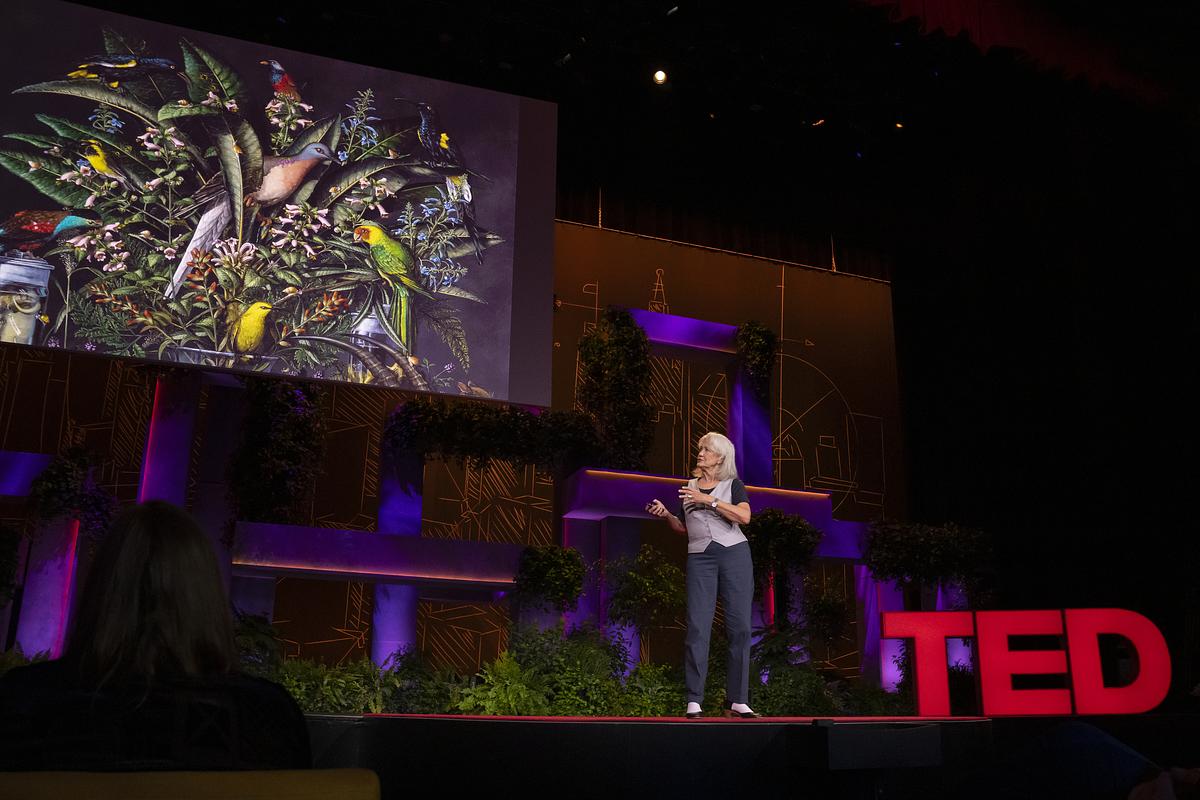
Artist Isabella Kirkland speaks at Session 4 of TED Countdown Summit on July 13, 2023, at the Fillmore Detroit in Detroit, Michigan. (Photo: Gilberto Tadday / TED)
Investigating humanity’s relationship to nature, artist Isabella Kirkland paints species that once lived along the Hudson River in her work “Palisades,” showcasing the profound beauty and rarity of the diverse life that once inhabited our planet — and advocating for the conservation of that which is still here. “I think of my paintings as alarm clocks,” she says. “They’re reminders of what’s at stake; the only problem is we keep pushing the snooze button.” Using art as both a poignant record of loss (like her painting “Gone,” which depicts extinct flowers, fish and snails) and discovery (like her painting “Canopy,” which shows mosses, insects and tiny orchids all new to Western science), Kirkland highlights the danger that wildlife trade poses to nature. Creation is her form of activism, and she uses it to celebrate and advocate for all living creatures that were, are and will be, inviting us all to do the same.
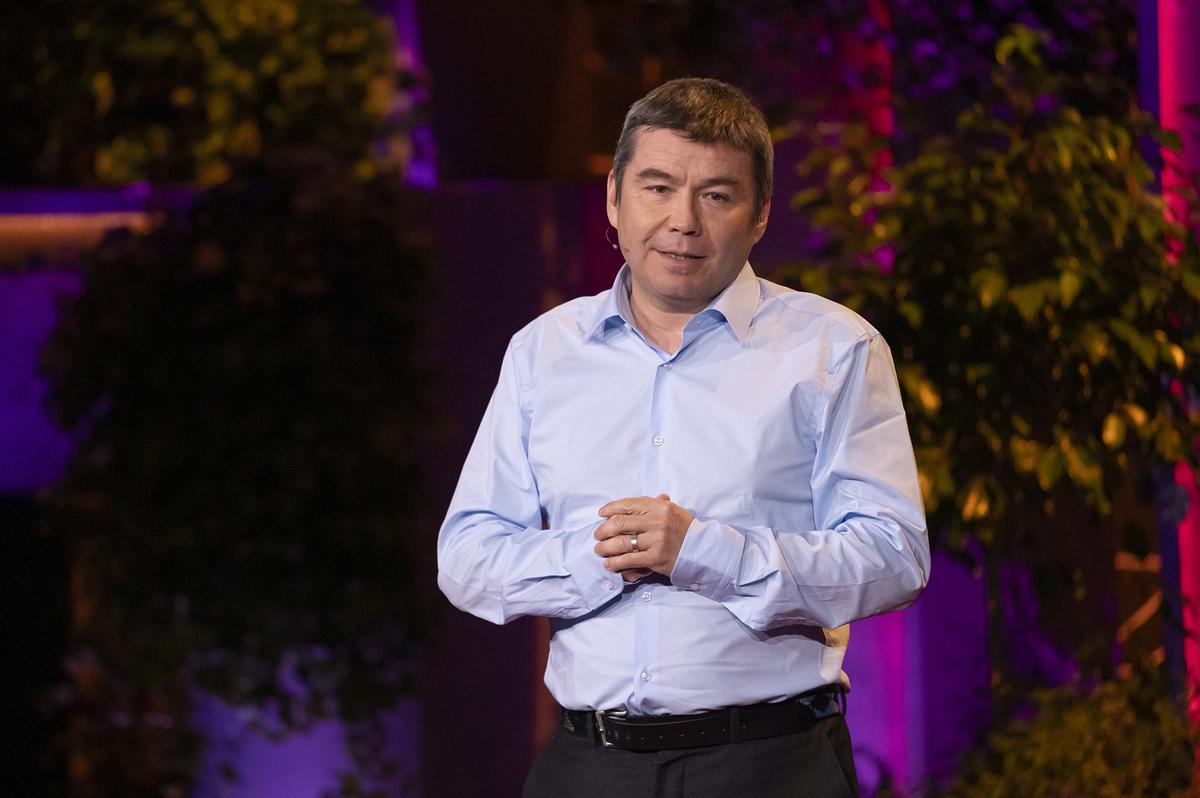
Biochemical engineer Marcelo Mena speaks at Session 4 of TED Countdown Summit on July 13, 2023, at the Fillmore Detroit in Detroit, Michigan. (Photo: Nick Hagen / TED)
Deadly and polluting methane that forms in massive landfills in places like Ghazipur, India, or Santiago, Chile, often causes fires — and heatwaves are only making the issue worse. Reducing these emissions is the most efficient way to lower Earth’s temperature within our lifetime, says biochemical engineer Marcelo Mena. But time is running out and this harmful gas needs to be cut in half by 2050 in order to effectively combat global warming. Working in more than 10 cities, Mena’s team created the Waste MAP (Methane Assessment Platform), which uses satellite information to pinpoint pollution sources ranging from organic waste, food production and enteric fermentation (a fancy way to say cow farts). Mena also introduces the enteric fermentation R&D accelerator: an ambitious, 200-million-dollar research effort to reign in livestock emissions and point the way toward a cleaner, safer future for everyone.
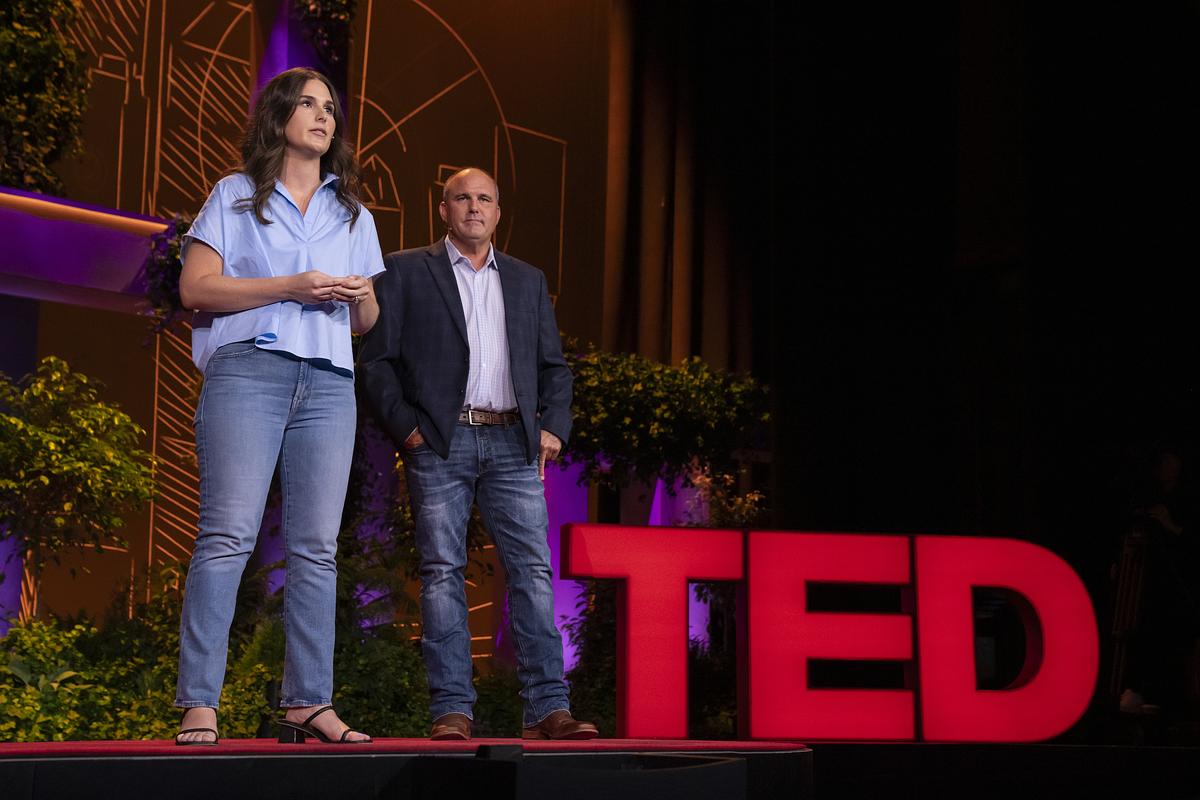
Conservation coordinator Jessica Whitaker Allen and sustainability advocate Jim Whitaker speak at Session 4 of TED Countdown Summit on July 13, 2023, at the Fillmore Detroit in Detroit, Michigan. (Photo: Gilberto Tadday / TED)
Rice is the world’s most consumed food source — and it accounts for 10 percent of the world’s methane emissions. Jim Whitaker (a fifth-generation rice farmer) and his daughter Jessica Whitaker Allen (a builder of conservation solutions) are seeking to grow sustainability awareness within the agricultural communities where they live in southeast Arkansas. Together, they’ve defined farming protocols that could slash rice’s environmental impacts, cutting water use, methane production and the need for fertilizer. While her dad works literally on the ground to refine irrigation methods, Jessica (a waterfowl conservationist by day) pursues funding to spread green practices — and SmartRice, a sustainable grain hybrid — first to their neighbors and, eventually, to the rest of the world. While it’s not easy to convince struggling farmers to invest in new methods, Jim and Jessica make strong arguments that the best way to preserve a farm’s bottom line is to preserve its land for future generations.
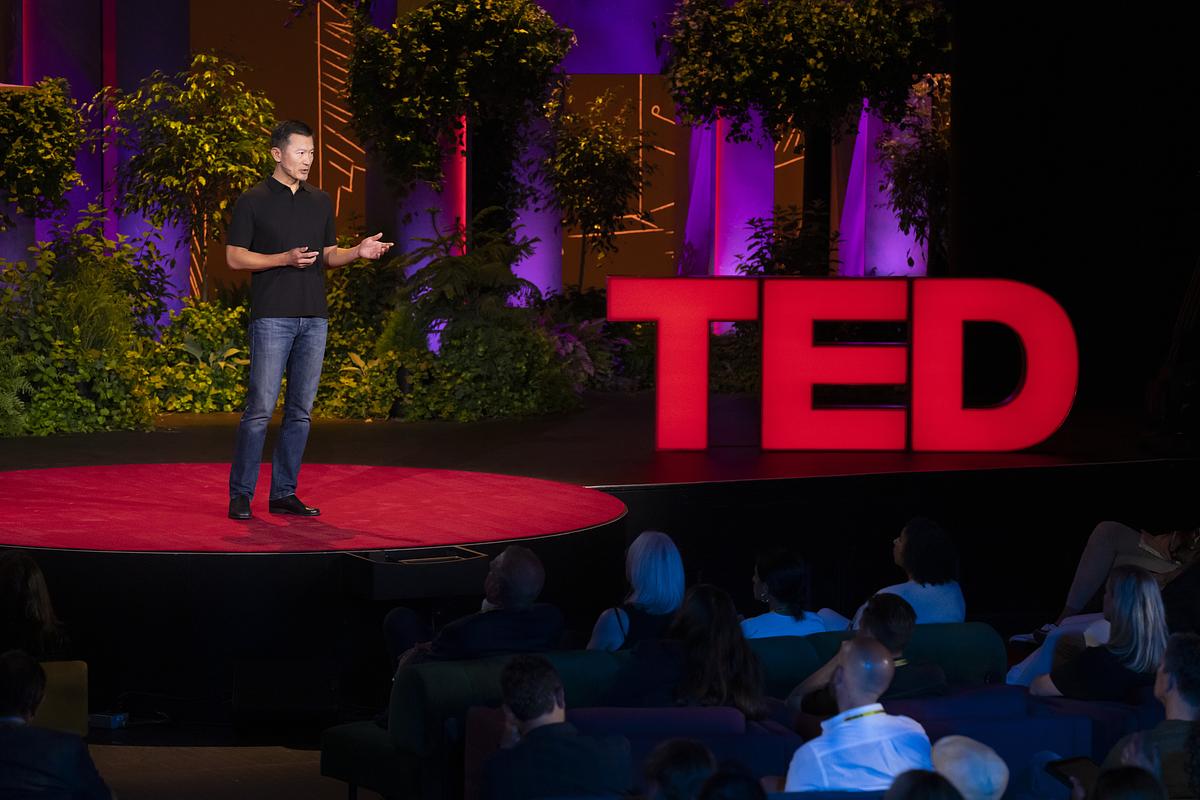
Impact investor Tao Zhang speaks at Session 4 of TED Countdown Summit on July 13, 2023, at the Fillmore Detroit in Detroit, Michigan. (Photo: Gilberto Tadday / TED)
A Chinese saying goes: “There is no pleasure in eating without meat.” Every year, China consumes 26 percent of the world’s meat, 43 percent of its pork and 45 percent of its seafood. But unlike other major meat-eating countries like the United States, China has yet to embrace more climate-friendly alternative proteins because, as Tao Zhang explains, consumers there regard mock meat as a cheap, unhealthy and flavorless substitute. Since the world can’t solve climate change without China, Zhang sees swaying Chinese eaters towards these new proteins as a climate-positive business opportunity. He discusses the potential impact of investing in food innovation in China, emphasizing why more research and development are needed to create, market and distribute tasty, affordable, regionally appropriate and meat-free proteins.

The attendee town hall at Session 4 of the TED Countdown Summit on July 13, 2023, at the Fillmore Detroit in Detroit, Michigan. (Photo: Gilberto Tadday / TED)